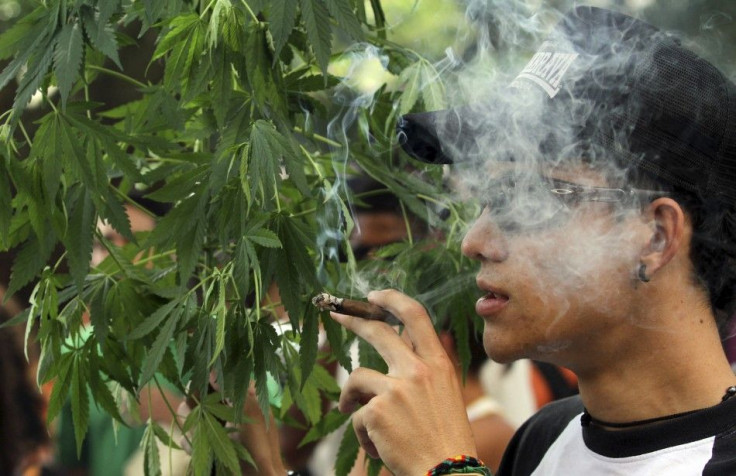Marijuana Ban is a Failed Model, Say Experts

Indiana state lawmakers, who are analyzing the implications of amending its drug laws to decriminalize marijuana, were told by a panel of experts that the prohibition of marijuana in U.S. is a failed model and Indiana stands a chance to benefit from decriminalizing marijuana.
"The public recognizes that our marijuana laws have done more harm than good," Daniel Abrahamson of the Drug Policy Alliance told the Indiana Legislature's Criminal Law and Sentencing Policy Study Committee, according to an AP report. "The federal government cannot require states to make marijuana illegal."
Abrahamson said, there have never been any instance where states were forced to 're-criminalize' marijuana following decriminalization.
Lawmakers have approved medical marijuana in 16 states and the District of Columbia and has eliminated penalties on small amounts of marijuana in 13 other states.
It was democratic state Senator Karen Tallian of Ogden Dunes who advocated the study to boost marijuana legalization process.
Initial estimates say Indiana could raise $44 million a year in sales taxes alone if it regulated and taxed marijuana.
Drug Policy Alliance's stance is that the U.S. and the U.N. with great deal of influence on international drug policy maintain criminal justice rather than health-oriented approach. "They (the U.S. and the U.N.) also continue to promote ineffective eradication and interdiction policies in countries where drugs are produced.
This sets the overall tone for global drug policy, so that the international community is locked into a model that promotes lucrative illicit markets dominated by organized crime," the organization alleges citing the cases of Mexico and Afghanistan. While Mexico's violent drug war resulted in tens of thousands of deaths, the illicit opium production of Afghanistan is so lucrative that "establishment of a stable, non-corrupt central government is proving nearly impossible."
The organization lauds the drug policy approach of Portugal, which explores a post-prohibition model by decriminalizing drugs. "Some nations embrace various elements of a harm reduction approach, in which drug policies are set and evaluated with the goal of reducing the harm of drugs and drug policies."
The DEA had denied a citizen petition to remove marijuana from the list of Schedule I narcotics, claiming that marijuana "has no accepted medical use in the United States and lacks an acceptable level of safety for use even under medical supervision."
Drug Policy Alliance, crusaders of decriminalized marijuana, in their open letter to DEA Administrator Michele Leonhart, express their concern for "the DEA's continued use of false and out-dated ideology to support failed drug policies." The letter calls for prioritizing evidence and not politics, "when making decisions that impact the freedom and quality of life of so many."
© Copyright IBTimes 2024. All rights reserved.












